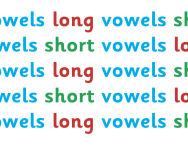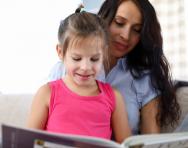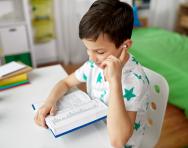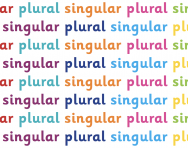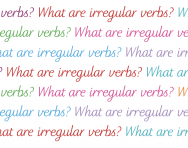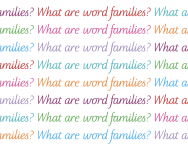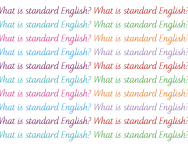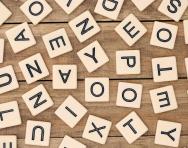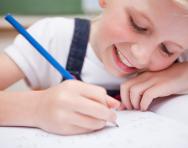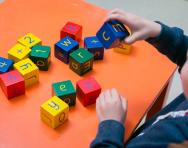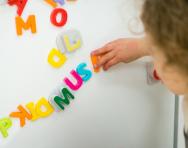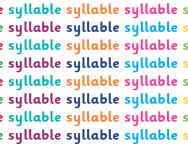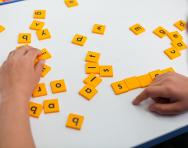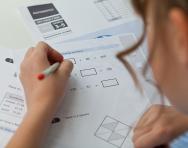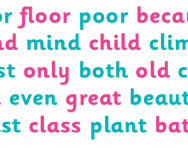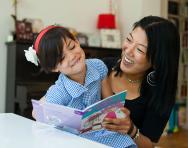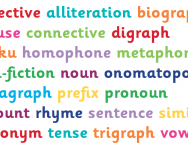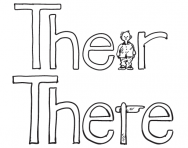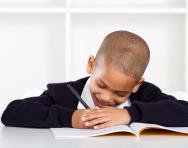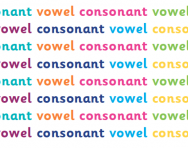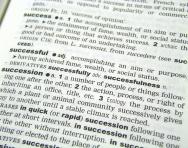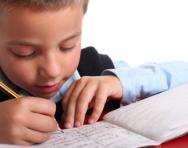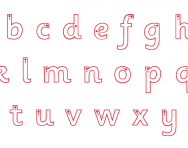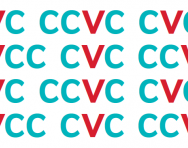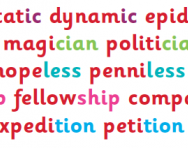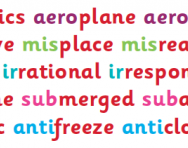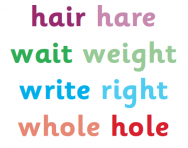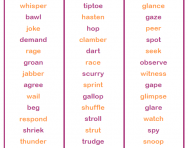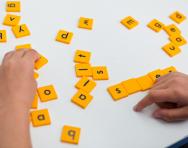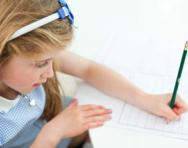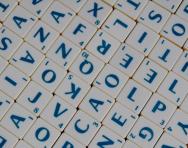Spelling articles
Parents' guide to Phase 6 phonics
Different primary schools use different ways to teach children about sounds and letters, called phonics. But most kids in early years and Key Stage 1 follow a set of steps, or phases, to learn phonics. In Phase 6, they deepen their phonics knowledge and use their skills to help them read and spell. Here, we'll explain what Phase 6 is all about and how you can help your child with it at home.
What are short and long vowels?
Although we have five vowel letters in English, each one can be pronounced in different ways and there are, therefore, far more than five vowel phonemes (vowel sounds). Each one has a short vowel and a long vowel form. Understanding vowel sounds is essential for developing reading and spelling skills.
Best literacy resources
Whether your child is just learning to read and print letters or looking for ways to put their creative writing skills to the test, we've rounded up some fantastic resources to help them practise phonics, grammar, story-writing and comic-creating at home. Plus there are loads of different ways to connect with authors and listen to stories.
How to teach your child to use a dictionary
Learning to use a dictionary is an important curriculum skill and will help your child expand their vocabulary. Here's how to help them find their way around it.
Best word puzzle apps for kids
Help your child brush up on their spelling, phonics and vocabulary skills with these brilliant games-based apps.
Best spelling apps for kids
Help your child get to grips with spelling with our round-up of the best spelling apps for primary-school kids.
What are singular and plural?
Singular and plural nouns and how they're taught in primary school, plus how KS1 and KS2 children learn about the formation of irregular plurals and how to use possessive apostrophes.
How dyslexia affects spelling
Dyslexia can have a profound effect on how your child learns to spell, but there are strategies to help them tackle their challenges. We share advice from the British Dyslexia Association to help you help your child at home.
Best spelling board games for children
Turn the weekly spelling test preparation from chore into challenge with our pick of the best spelling board games for children and families. From brand-new readers and writers to spelling bee champions, there's plenty for even the most competent speller to enjoy!
What are irregular verbs?
Children learn to use irregular verbs naturally as they speak and write English, but will also understand more about them during their time at primary school. We explain how irregular verbs are introduced in the classroom in our guide for parents.
What are word families?
Understand more about how children are introduced to word families, made up of words that share a root word modified by different prefixes and suffixes, in our guide for primary-school parents.
What is Standard English?
Standard English is accepted as the "correct" form of English, used in formal speaking or writing. In primary school children are expected to learn to write according to the rules of Standard English.
9 strategies for learning primary school spellings
If learning spellings always ends in tears and tantrums, trying another technique could help make it a less stressful process. We've rounded up the best methods to try.
Spelling in Year 5 and Year 6
Spelling is an important part of the Year 6 Grammar, punctuation and spelling test. Support your child's learning at the end of KS2 with Y5 and Y6 spelling worksheets and activities to help practise the spelling rules and patterns they're learning at school.
Spelling in Year 3 and Year 4
From homophones to the use of prefixes and suffixes, spelling gets more technical in KS2. We explain what spelling patterns and rules your child will be introduced to in Year 3 and Year 4, and how you can support their learning with worksheets and activities at home.
Spelling in Year 2
A parents' overview of Year 2 spelling patterns, with examples of the words children are taught at the end of KS1 and Year 2 spelling worksheets to help them practise.
Year 1 spellings
Year 1 is a foundation year for spelling, with children being taught important spelling patterns and exception words as well as how split digraphs work. We explain how you can support your child's Y1 spelling learning at home with an understanding of the curriculum and practical worksheets and activities.
Spelling in Reception
How is spelling introduced to Reception-age children? We explain how phonemes and then graphemes are taught in the classroom, and what words children are expected to be able to write by the end of their first year of primary school.
What is a syllable?
Syllables explained for parents, including details of how primary-school children are taught to identify syllables to help them with spelling and reading and understanding poetry.
Best word games for children
Expand vocabulary, develop spelling skills, learn about homophones, anagrams and synonyms and compose huge numbers of silly sentences... all while having a great time. Whether your child is 3 or 13, our favourite word board games and literacy card games offer fast-paced fun for the whole family.
Changes to KS2 SATs in 2024: what parents need to know
If your child is in Y6 in 2024, read on for the most up-to-date SATs information for parents.
What are exception words?
As your child learns to read you might hear them talk about the 'exception words' they are learning. We explain what exception words are, what role they play in phonics learning and how you can support your child's developing reading and spelling skills at home.
SATs revision: your KS1 SATs English helper
KS1 SATs are no longer compulsory, but some schools may still choose to administer them. If so, you can help child prepare for the Year 2 English SATs with some simple and effective reading, writing and spelling activities.
Primary literacy glossary for parents
From adjectives to writing frames, TheSchoolRun's primary-school literacy glossary offers a complete guide to all the concepts children are taught in EYFS, KS1 and KS2 English. Brush up on your own literacy skills, clear up homework confusion and understand exactly what your child is learning at school by reading our basic definitions (with links to more detailed explanations, teachers' tips and examples).
Memory aids for kids
Rhymes, acrostics and other mnemonics could all help your child to remember important facts, from tricky spellings to grammar rules. We asked the experts why they work so well – and for their top 10 memory aids.
What is Look, Cover, Write, Check?
Look, Cover, Check, Write is a strategy your child will be taught in schools to help them learn spellings. Find out how the technique is taught in the classroom so you can reinforce learning at home in the same way.
What are vowels and consonants?
We explain what vowels and consonants are and how primary-school children are taught to identify CVC, CCVC and CVCC words, vowel digraphs and consonant digraphs.
What is a root word?
We explain what a root word is and how prefixes and suffixes can be added to root words to turn them into words with different meanings.
What is a letter string?
Learning certain letter strings will help your child with their reading and spelling. Find out about different letter strings and tips to help your child remember them.
What is encoding?
Find out how your child will learn to encode – hear a sound and write it down – and what you can do at home to support learning.
What is a grapheme?
Your child will be taught about graphemes as part of their phonics learning journey. We explain what graphemes are and how you can help your child understand the concept at home.
What are CVC words, CCVC words and CVCC words?
Phonics teaching introduces children to CVC words (consonant vowel consonant), then CCVC words (consonant consonant vowel consonant) and CVCC words (consonant vowel consonant consonant). Understand how teachers will present the different words in the classroom and how to support your child's learning at home in our parents' guide to decoding and blending sounds.
What is a suffix?
Suffixes are word endings. Children learn suffixes and how to use them to help them improve their spelling and understand of nouns, verbs, adjectives and adverbs. Find out more about how to help your child with KS1 and KS2 spelling and the use of suffixes in our guide.
What is a prefix?
Prefixes are groups of letters added to the beginning of a word, changing its meaning. Learning prefixes helps children with their spelling and vocabulary; we explain everything primary-school parents need to know about prefixes and spelling in KS1 and KS2.
What is a homophone?
Homophones are tricky words which sound the same but have different meanings and are sometimes spelled differently (there, their and they're, for example). We explain how your child will be introduced to homophones in the classroom and tricks you can try at home to help them master homophone spelling.
What is a word bank?
Word banks are useful tools to help improve children's writing in KS1 and KS2. Find out how to create one at home and make expanding vocabulary a whole-family project!
Simple ways to make spellings fun
If your child’s spellings have become the bane of your week-end it’s time to take a look at how you tackle the weekly-test challenge. Teacher Phoebe Doyle offers 10 suggestions to help make spelling practice more playful than stressful.
What is the Y6 Grammar, Punctuation and Spelling test?
Year 6 children are all tested on their spelling, punctuation and grammar as part of the KS2 SATs. So what will your child need to know, and how can you help them brush up their skills? By Lucy Dimbylow.
Teachers’ tips to make tricky spellings easy
Does making your child prepare for the weekly spelling test make your heart sink? Forget mindless drilling – primary teacher and preparing-for-spelling-tests veteran Phoebe Doyle has found ways to take some of the stress out of learning tricky words.
5 unusual ways to help with spelling
Help your children improve their spelling skills with games and activities that build word-savviness in fun and interesting ways.

